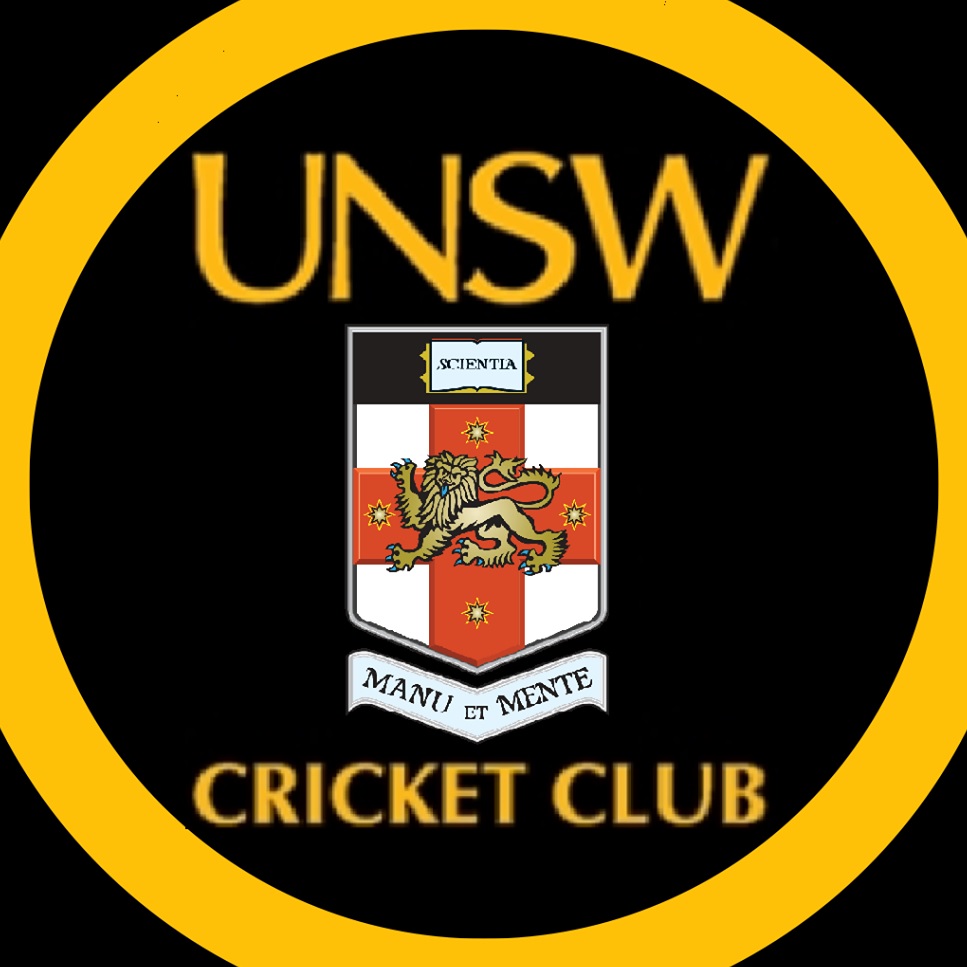The Saturday Sledge - First Grade Reschs Cup Match UNSW v Bankstown at Bankstown, 9 January 1994
UNSW Cricket Club | June 11, 2023

Introduction
The Saturday Sledge had its beginnings as a typical cricket club newsletter (originally named “Get Stumped”) which reported scores, advertised social events and included the occasional amusing story. For many years most players gave it a cursory glance, looking mainly for their own name, and then threw it in the bin. Some players still do this with The Sledge, but for the majority of the Club it has come to represent much more. Many have unveiled previously unknown literary talents. Others have chosen it as a vehicle to reveal their darker side, perhaps never able to do this in their private lives. Others have used it to protest about life, relationships, and other people’s social habits. Some have just been funny.
In the early days of the Sledge, the majority of match reports were anonymous. However, its developing “maturity” brought a new openness to the Club which encouraged players to proudly identify themselves as the authors of its unique contents.
The Sledge archives parallel life towards the end of the 20th Century. During the Eighties it was consumed and then disposed of like so many good times before fiscal responsibility, AIDS and globalisation took their hold on us. As a result, there is little evidence that a newsletter even existed. Fortunately, however, towards the end of that hedonistic decade Michael Gregg took over the editorial duties, nicked a Clayton Jones idea for a new name and decided that in future it would be worth keeping a few issues. It is from these archives that we can see the newsletter developing from an expanded version of the Herald scores to what it is today, a document which speaks for the Club and charts the minds of its wayward and disturbed personnel as they sail their cricketing voyage.
David Jebb (Editor 1995-2001)
First Grade Reschs Cup Match UNSW v Bankstown at Bankstown, 9 January 1994
By Tony Pratt
The thick brocaded curtain over the future was drawn back on this most auspicious of days, to reveal not the assembled cast, but another curtain of a less imposing material - maybe lace, maybe taffeta - allowing us merely to glimpse the shadowy figures beyond. One such amorphous outline could be Steve Norbury, whose innings of 48 n.o. was as carefully constructed and significant as the creations of a Parisian stonemason. Another could be Andrew Johnson, whose mere presence in the 12 after such a brief sojourn through the rocky hills of grade cricket is in itself illuminating.
The bare statistics of the match must be stated, although they form the mere skeleton upon which the players deeds are the flesh and blood, the capillaries and vital organs; even the genitalia. University of NSW batted first, and after 50 overs were 8 for 217. Apart from the aforementioned Norbury, Matthew Phelps compiled 34, Matt Hayward much the same, and David Trafford hit out wantonly at the end for an unbeaten 26, which included two sixes, one of which was over a deep mid off/mid on area guarded by three of the blue and white enemy. Bankstown were all out in the 45th over for 168, a most capacious defeat for a team who lead the regular grade competition by 18 points, and for whom losing is as rare as a dry eye at a performance of Mahler’s “Unrequited”.
It is too trifling to say that it was in the field that University won the game; nothing short of heroics were performed by these young men against a hard-bitten team of cricket’s equivalent to men who sit around the campfire on the prairie, spitting tobacco, eating hunks of freshly slaughtered cow while keeping one ear cocked to the howling of the prairie-dogs. The bowlers, to a man, bowled straight and with purpose; this was no more typified than by Trafford’s delivery to dismiss Steve Small - that most grizzled of the cocked-ear brigade - that scythed through his defence to shatter the precious timber beyond.
Doubtless though, it was the ground fielding that blunted the rapier thrusts of the foe. The lassitude that often pervades the men under the bumblebee was as absent as Lear’s reason in the storm as they dived, ran, caught and threw; indeed, they disturbed the wooden fortresses at either end of the wicket for run outs on no less than three occasions. The tobacco-spitters from the south-west were heard to mumble on two occasions, through mouthfuls of cow, that the fielding was superb. High praise indeed, but no more that the University side deserved on this balmy high summer’s day. All this, however, is mere bagatelle; no more than a prologue to the celebrations afterwards which walked that tightrope between raucous and raunchy; levity and lewdness. The elegant Royal Hotel at Paddington provided the setting; tossing a coin with the bar staff for the chance to imbibe without the customary exchange of currency proved to be the catalyst. Glen Breusch traversed the length of Glenmore Road with his shorts and underwear buried deep in the cleft of his buttocks; Matt Hayward, Steve Norbury, David Gallop and the ubiquitous Breusch all discovered that their bottoms fitted easily into a car window space, and in jubilation revealed to the community at large a dark nether-world hitherto visited only by, at best, an assortment of hapless females. A lone policeman was called by the cowering inhabitants of the street to banish these strange people whence they came, and, satiated by eight pizzas and fortified by the knowledge that cricket is the noblest of pursuits, they, proving that they are indeed not unlike the prairie-dogs that disturb the sleep of the tobacco-spitters of the south-west, loped into the night.








